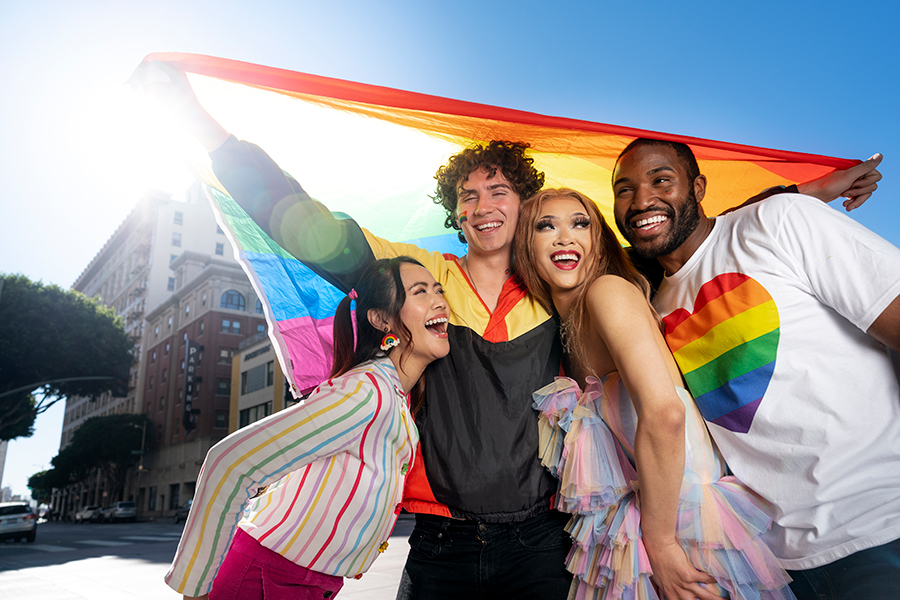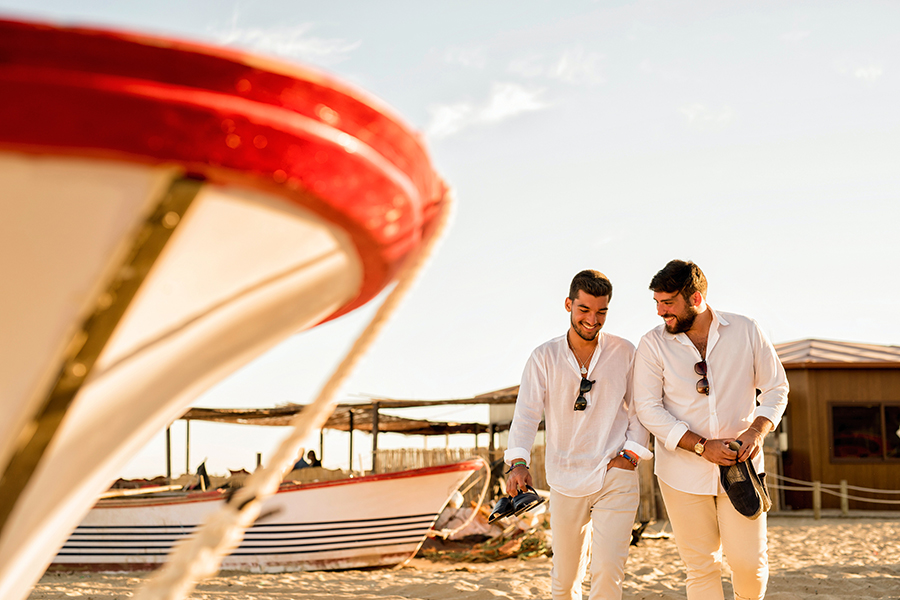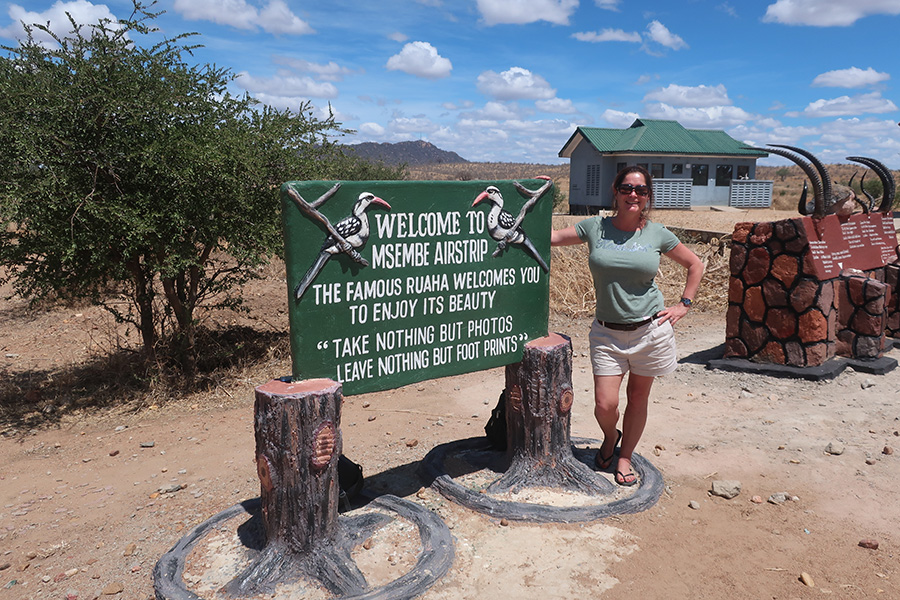The LGBTQ community plays a significant role in the international travel industry, contributing billions of dollars annually. While there are still countries with anti-gay laws, Africa is becoming more accepting and welcoming. At Stories and Experiences Travel, we are proud to offer LGBTQ-friendly safaris in Africa. Our Africa Safari Experts have firsthand experience in creating tailor-made itineraries for LGBTQ travelers, ensuring their safety and comfort throughout their journey.
Stories and Experiences Travel: LGBTQ-Friendly Safaris in Africa
We at Stories and Experiences Travel want to make it clear that we do not support any anti-LGBTQ laws or prejudiced opinions. We have the utmost respect, acceptance, and support for the LGBTQ community. Our team is dedicated to creating an inclusive environment where people of all backgrounds, cultures, genders, and sexualities feel safe and well taken care of.

FAQs About LGBTQ Travel Safety in Africa
1. Is Africa Safe for Gay Travellers?
Yes, safari destinations in Africa are perfectly safe for LGBTQ travelers. Our African Safari Experts prioritize your safety and only work with accommodations and suppliers that are accepting and welcoming of all guests.
2. Is Africa Safe for Trans and Non-Binary Travellers?
Africa can be a safe travel destination for trans and non-binary travelers, especially in countries like South Africa. Our Africa Safari Experts will create a tailor-made itinerary that considers your unique situation and ensures your safety.
3. Is Africa Safe for Women?
Yes, women are completely safe when on safari in East or Southern Africa. Our accommodations provide a safe and respectful environment for all guests.

4. Is It Illegal to Be Gay in Africa?
Same-sex relationships are illegal in some African countries, but as a tourist, you will not face any issues as long as you remain discreet about your sexuality and avoid public displays of affection.
5. Should I Avoid Anti-LGBTQ Countries in Africa?
While it’s a personal choice, visiting these countries can support local communities and contribute to positive change. Many people in these countries are open-minded and accepting, and pride parades and protests are working towards altering public perception and laws.
6. How Cautious Do I Need to Be When Travelling as an LGBTQ Person?
Travelling as an LGBTQ person in Africa is generally safe. It’s important to be aware of local laws and customs, avoid public displays of affection, and disclose as little personal information as possible.

7. Can My Partner and I Show Public Displays of Affection in Africa?
While it’s safe to show public displays of affection in South Africa, it’s advised to avoid it in other African countries, especially those with anti-LGBTQ laws. Respecting local customs and views is important for your safety.
8. Will I Be Allowed to Sleep in the Same Bed as My Partner When in Africa?
Yes, you can sleep in the same bed as your partner. However, some accommodations in conservative regions may provide separate beds based on your documentation.
9. Are Locals in Africa Homophobic and/or Transphobic?
Unfortunately, homophobia and transphobia exist in nearly every society, including Africa. It’s important to remain discreet and avoid public confrontations to ensure your safety.

10. Is Africa a Good Option for Single Gay Travel?
Africa offers opportunities to meet others in the LGBTQ community, especially in cosmopolitan cities like Cape Town and Johannesburg. However, it’s advised to avoid seeking out LGBTQ communities in countries with anti-gay laws.
11. Are There Pride Parades in Africa?
Yes, Cape Town and Johannesburg host annual pride events that provide a safe and inclusive space for people of all ages, genders, and sexualities. Botswana also hosts a pride event to support LGBTQ rights.
Q&A With Past Stories and Experiences Travel Clients
We reached out to our past clients to hear about their experiences as LGBTQ travelers in Africa. Here’s what they had to say:
“As lesbians, it was in the back of our minds that LGBTQIA+ people are persecuted in these countries. We were aware that people may not be thrilled to have us there, but we also know they need and appreciate the money we bring as tourists. We always felt safe, no matter where we went, regardless of the fact that we are two women traveling alone or because of our sexual orientation. Our time in Africa was amazing, and we would not hesitate to come back.” – Julia Harshberger and Scott Popkowski
What Our Africa Safari Experts Have To Say

“As a travel professional, I embrace the challenges that arise when working with clients who have valid concerns about traveling to unfamiliar territories. Nervousness is natural, but through open communication and sharing information, we overcome those barriers together. It brings me immense joy to create remarkable experiences for all my clients, including LGBTQ travelers.” – Emma Hill, Africa Safari Expert

“East Africa is more conservative, but it’s best to be aware of that for everyone. Within the lodges and resorts, you can be more relaxed. I’ve never had any issues from any lodge or camp that my clients have visited. Kenya is a safe destination for the LGBTQ+ community.” – Lauren Johansson, Africa Safari Expert
Ready to Experience LGBTQ Travel in Africa?
Contact our Africa Safari Experts to start planning your adventure. With over two decades of experience, we are professionals in crafting tailor-made itineraries that will make your dreams come true.
Title: Essential LGBTQ Travel Guide: Unveiling Africa’s Safety Tips and FAQs
Introduction:
Traveling to Africa can be an exciting experience for LGBTQ individuals looking to explore the diverse cultures, wildlife, and breathtaking landscapes the continent has to offer. However, it is crucial to be aware of the various laws, customs, and social attitudes prevailing in different African countries to ensure a safe and enjoyable visit. This article aims to provide essential safety tips and address frequently asked questions regarding LGBTQ travel in Africa.
Understanding LGBTQ Rights in Africa:
Africa is a diverse continent consisting of 54 countries, each with unique laws and attitudes towards LGBTQ rights. While several African countries have laws criminalizing same-sex sexual activity, others have taken progressive steps towards LGBTQ rights and acceptance. It is essential to research and understand the local laws and customs of the specific country or region you plan to visit, as attitudes toward homosexuality can vary widely.
Safety Tips for LGBTQ Travelers:
1. Research: Prior to your trip, thoroughly research the LGBTQ rights situation, cultural norms, and legal framework of your chosen destination. This knowledge will enable you to make informed decisions about your activities and behaviors while minimizing risks.
2. Closeted Travel: In countries where homosexuality is highly frowned upon or even illegal, discretion is advised. While it may be tempting to express your identity openly, it is crucial to prioritize your safety and well-being.
3. Public Displays of Affection: Although public displays of affection are widely accepted in some African countries, it is important to be cautious in areas where LGBTQ acceptance is lower. Exercise discretion and observe the local cultural norms to avoid unwanted attention.
4. Connect with local LGBTQ communities: Reach out to local LGBTQ organizations or communities in advance to connect with like-minded individuals who may provide valuable insights, safety advice, and support during your visit.
Frequently Asked Questions:
1. Is it safe to travel to Africa as an LGBTQ individual?
Safety can vary significantly depending on the country and region. Research the laws, social attitudes, and LGBTQ-friendly establishments in your chosen destination. Exercise caution, particularly in countries where homosexuality is criminalized or not widely accepted.
2. Can LGBTQ individuals openly express their identities in Africa?
While several African countries have increasingly embraced LGBTQ rights, others still have laws and societal attitudes that do not support the community. It is imperative to research and understand the cultural norms and laws of your destination to make informed decisions regarding self-expression.
3. Are LGBTQ-friendly accommodations available in Africa?
Various LGBTQ-friendly accommodations, such as hotels, guesthouses, and resorts, can be found in several African countries. Prior research and consultation with LGBTQ organizations or travel agencies can help identify safe and inclusive places to stay.
Conclusion:
Traveling to Africa as an LGBTQ individual offers a chance to discover the continent’s diverse cultures, breathtaking landscapes, and vibrant communities. However, it is crucial to be aware of the legal, cultural, and social realities of the country or region you plan to visit. By conducting thorough research, following safety tips, and connecting with local LGBTQ communities, you can enjoy a safe and memorable trip to Africa while respecting local customs and laws. Safe travels!




